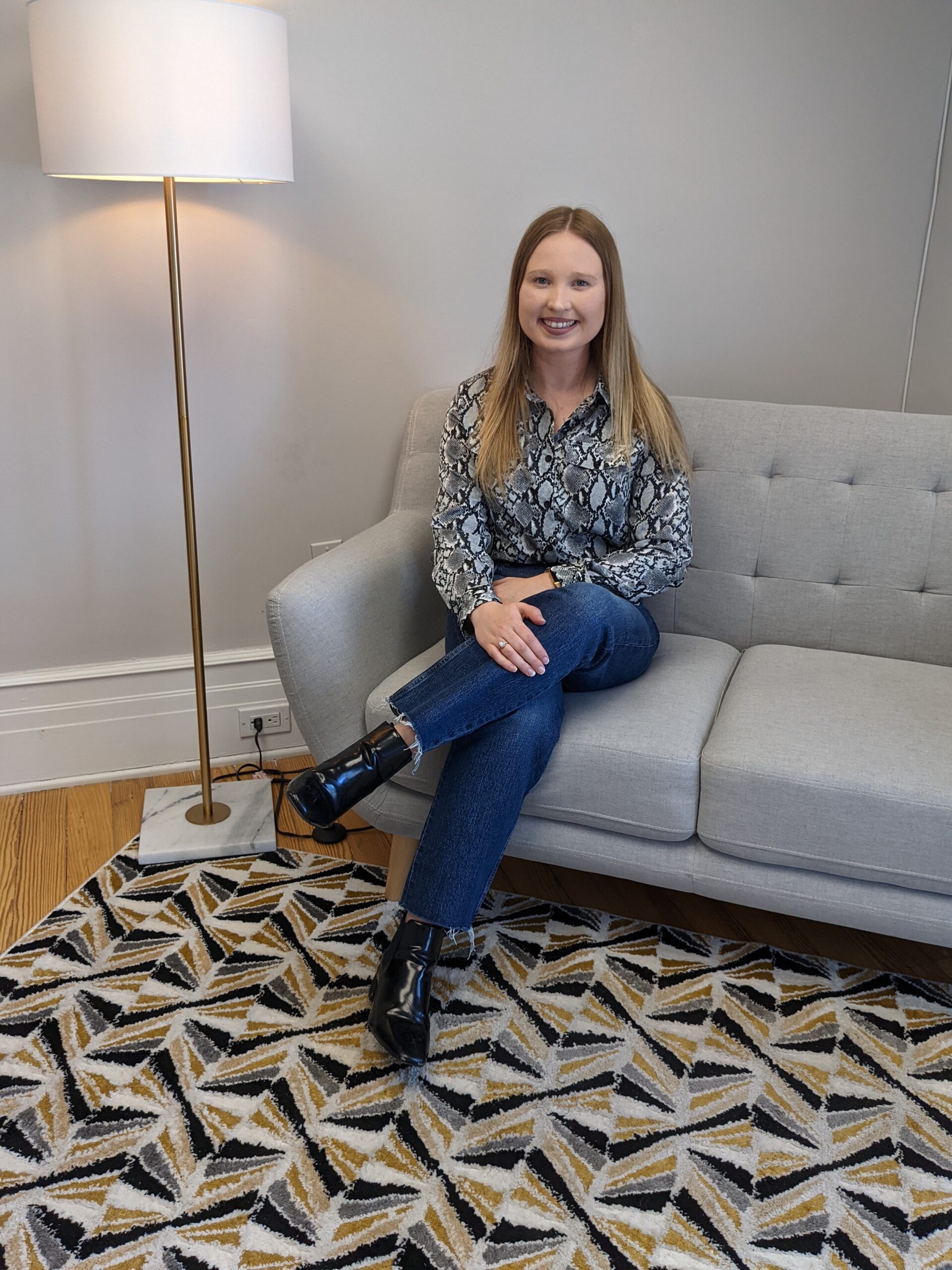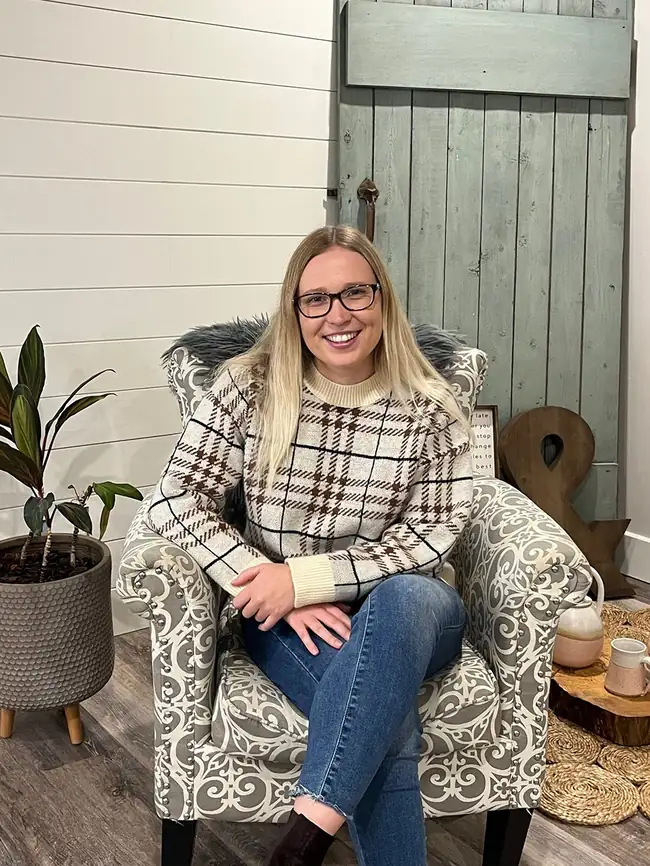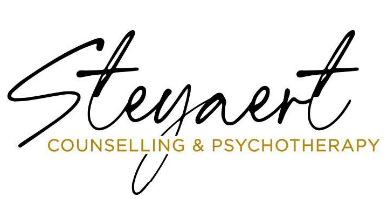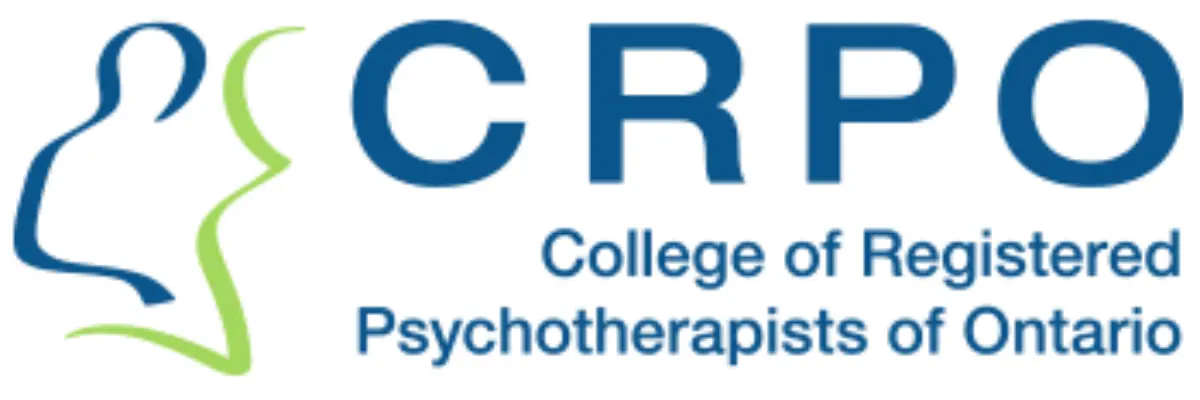
Attachment-Based Therapy in London & Burlington, Ontario
In-Person, Virtual and Phone Call Appointments Available Across Ontario.
No Waitlist | Free Parking
Struggling with trust or intimacy in your relationships? You’re not alone – and it might trace back to early attachment experiences. Our Attachment-Based Therapy services in London & Burlington, Ontario (and online across Ontario) help you heal those old wounds in a compassionate, evidence-based way. Whether you’re an individual dealing with childhood trauma or a couple seeking relationship therapy in London, we’re here to guide you toward stronger bonds and secure connections.
What Is Attachment-Based Therapy?
Attachment-Based Therapy (ABT) – also known as attachment-focused therapy or bond-based counselling – is a form of psychotherapy for attachment issues that centers on the emotional bonds you form with others. It’s rooted in psychologist John Bowlby’s Attachment Theory (1969), which taught us that a child’s early bond with their caregiver shapes their sense of security and trust later in life. If those early bonds were unstable or traumatic, you might carry forward patterns of anxiety, avoidance, or insecurity in your adult relationships.
Attachment-based therapy helps by rebuilding safety and trust from the ground up. In sessions, your therapist provides a secure, supportive relationship where you can explore feelings and experiences you might usually avoid. The idea is that by experiencing a trusting therapeutic bond, you gradually learn healthier ways to connect with yourself and others. This approach is not the same as the controversial “attachment therapy” of the 1970s – ABT is a gentle, mainstream method grounded in research and empathy. Ultimately, Attachment-Based Therapy aims to heal old attachment wounds so you can form fulfilling, secure relationships in the present.
Rooted in John Bowlby’s Attachment and Loss (1969), ABT helps you rebuild trust by experiencing a secure bond in therapy.
How Attachment Styles Form & Impact You
Our attachment style is essentially the “relationship template” we developed as children. Bowlby and colleagues identified four primary attachment styles
Secure Attachment:
Secure attachment forms when early caregivers are consistently responsive. As an adult, you likely feel comfortable with intimacy, trust others, and have a healthy balance of independence and closeness.
Anxious Attachment (Preoccupied):
Often develops from inconsistent care. You might fear abandonment and crave reassurance, leading to clinginess or worry in relationships. Emotionally, it’s a rollercoaster – always wondering if others care as much as you do.
Avoidant Attachment (Dismissive):
Often stems from caregivers who were emotionally distant or rejecting. You may become independent to a fault, finding it hard to rely on or open up to others. Intimacy feels threatening, so you keep people at arm’s length.
Disorganized Attachment:
Usually linked to trauma or chaotic early relationships. It’s a mix of anxious and avoidant tendencies – you want closeness but also fear it. This can lead to confusing push-pull behaviours in adulthood and difficulty trusting anyone (including yourself).
How do these styles impact you now? Big time. If you have an insecure attachment style (anxious, avoidant, or disorganized), you might struggle with low self-esteem, difficulty regulating emotions, or persistent relationship problems like jealousy, distrust, or inability to get close. For example, anxious attachers can feel panicked by any distance in a relationship, while avoidant folks might shut down when a partner gets too close. Over time, these patterns contribute to mental health challenges – anxiety, depression, loneliness, or repeated unhealthy relationships.
Your attachment style is not a life sentence—you really can heal and change.
Who Benefits from Attachment Work
Attachment-based therapy isn’t just for one type of person – it’s for anyone who wants healthier relationships and emotional well-being. Here are some people who often find relief and growth through attachment work:
- Adults with childhood attachment wounds: If you grew up with neglect, abuse, or inconsistent care, those early experiences likely still echo in your adult life (that stuff ain’t easy to just “get over,” we know). ABT helps you heal your inner child, so you can finally feel worthy of love and safety.
- Individuals with relational trauma: Survivors of trauma (physical abuse, sexual abuse, domestic violence, or abandonment) often carry deep mistrust and fear in relationships. Attachment-focused therapy provides a safe space to process that trauma and rebuild a sense of security in connecting with others.
- Couples with trust or intimacy issues: For partners dealing with betrayal, jealousy, or constant conflict, attachment work acts like relationship therapy focused on the bond between you. We help you understand each other’s attachment triggers, communicate your needs, and restore trust. (Even if one of you is more anxious and the other more avoidant – we’ll navigate that dynamic so you can meet in the middle.)
- Parents hoping to improve bonds with their kids or teens: Struggling to connect with your child or adolescent? Attachment-based techniques can guide you in fostering a more secure, understanding parent-child relationship. You’ll learn to respond in ways that make your child feel seen, safe, and supported – breaking cycles from your own past and building a healthier future for your family.
- LGBTQ+ clients seeking affirming care: If you’re an LGBTQ+ individual, you might have faced rejection or identity-related trauma that impacts trust and attachment. Our team provides affirming, nonjudgmental support. Attachment therapy can help you unlearn any shame and develop secure bonds – whether with family, friends, or partners – that celebrate you for who you are.
- Virtual-only clients across Ontario: Maybe you live in a remote area, have mobility issues, or just feel more comfortable at home – you can still benefit from attachment-focused therapy. Our online therapy option lets you connect with a skilled attachment therapist via video. Geography isn’t a barrier to healing your relationships with others (and yourself) anymore.
Clinical Finding: One randomized controlled trial found ABT reduced attachment anxiety & avoidance, leading to better emotional health.
Our Attachment-Focused Approach in London & Burlington
At Steyaert Counselling, we approach attachment-based therapy with deep empathy and a game plan. Healing attachment wounds can feel vulnerable, so first and foremost, we prioritize emotional safety. Both our London and Burlington offices provide warm, private spaces where you can speak freely. Our therapists (meet them below!) are down-to-earth and get how hard it is to open up about things like trust issues or trauma. We won’t rush you – we’ll go at your pace, ensuring you feel heard and respected every step of the way.
What sets our approach apart? We blend proven attachment therapy techniques with a compassionate, client-centred style that fits your unique needs. Here’s what you can expect from us:
Compassionate & Trauma-Informed:
We know talking about childhood or relationship pain can be triggering. Our therapists are trained in trauma-informed care, which means we create a safe container for those tough conversations. You won’t be judged or pushed beyond what feels tolerable. (We’re here to support you, not re-traumatize you.)
Personalized to You:
Attachment issues don’t look the same for everyone, so we don’t do one-size-fits-all. Your therapist will collaborate with you to set goals that matter to you – whether it’s reducing your anxiety in dating, rebuilding trust with your spouse, or coming to terms with past abuse. We draw on various modalities (like Emotionally Focused Therapy for couples or inner-child work for individuals) to tailor the process to your situation.
Evidence-Based Techniques:
Our approach is grounded in attachment theory and supported by research. (We stay up-to-date with the latest findings, like that meta-analysis by Debrot et al., 2017, showing attachment-based therapy’s effectiveness) What does this mean for you? Interventions that are proven to help, for example, exercises to improve emotional regulation, communication drills for couples, or guided imagery to reimagine painful early experiences in a healing way. It’s not just talk; it’s therapeutic work designed to create real change.
Inclusive & Affirming Care:
We welcome clients of all backgrounds. Our practice is LGBTQ+ affirming, culturally sensitive, and welcoming to everyone. Secure attachment is a human need, so no matter who you are, you deserve to feel safe and accepted in therapy. Our Team page shares more about the values each therapist brings.
What to Expect in Your First Session
Taking that first step to start therapy can be nerve-racking – we get it. Here’s a peek at what your initial attachment therapy session will look like, so you can feel more comfortable walking in (or logging on):
1. A Warm Welcome:
Your therapist will greet you with a friendly, down-to-earth vibe. We know it’s important you feel at ease. If it’s online, we’ll ensure the tech is working and you’re settled in a private spot.
2. Getting to Know You:
In this first meeting, you set the pace. We’ll likely begin by discussing what brought you to therapy – maybe it’s a recurring issue like “I can’t handle when my partner pulls away” or “I feel numb in relationships and don’t know why.” You can share as much or as little detail as you want. There’s no pressure to dive into heavy trauma right off the bat.
3. Attachment History (Gently) Explored:
Because this is attachment-focused, your therapist might ask a few questions about your early life or past relationships. For example, “What was it like growing up in your family?” or “Have you noticed patterns in past friendships or breakups?” This isn’t an interrogation – it’s more like connecting the dots. If any topic feels too painful to touch yet, just say so; we’ll respect that and perhaps circle back later when you feel safer.
4. Education & Initial Insights:
We’ll likely share a bit about how attachment works (if you’re interested). Many clients find it relieving to learn that, say, anxious or avoidant behaviours are common responses to earlier experiences – it’s not “just me being broken.” You might even have an “aha” moment or two in this first session as things start clicking. We’ll also answer any questions you have about the therapy process.
5. Collaboration on Next Steps:
Toward the end of session one, we’ll discuss a plan together. This includes how often you want to meet (weekly is common to start), what goals you might have (e.g. “build confidence being alone” or “stop pushing people away when I’m scared”), and any other supports you might need. We’ll make sure you leave knowing what comes next. If you’re doing an individual therapy session, it’s all about your personal growth; if you came in as a couple or family, we’ll outline how we’ll balance individual vs joint work.
Most importantly, expect to feel heard and understood. Many clients tell us they feel a weight off their shoulders after even the first meeting, just by voicing things they’ve held inside. You might also feel nervous or emotional – that’s 100% normal. We’ll check in with you about how the session felt and make sure you’re okay as you head out. And remember: this first session is just the beginning. Healing attachment wounds is a journey, but you’ve taken a brave first step. 👍 (We’ve got you from here.)
Meet Your Attachment Therapists
Your therapists at Steyaert Counselling are not only trained in attachment-based approaches – they’re genuinely passionate about helping you form healthier relationships. Meet the two clinicians ready to work with you on attachment healing:

Hannah Steyaert M.A., Registered Psychotherapist
Hannah is a Registered Psychotherapist who leads our London office. With a background in psychodynamic therapy, she excels at guiding adults through deep attachment healing. Clients describe Hannah as warm, empathetic, and insightful. She will help you gently unpack how your past is affecting your present, in a way that feels safe and empowering. Hannah has worked with dozens of individuals on issues like trust, abandonment fears, and self-esteem, always tailoring therapy to each person’s needs. (Fun fact: as a psychodynamic therapist, she’s basically an expert “pattern detector” – she can help you spot those unconscious relationship loops you keep getting stuck in, and then change them for the better!)
Learn more about Hannah’s credentials and approach.
Proud Member of:

Hailey Steyaert M.A., Registered Psychotherapist
Hailey is the heart of our Burlington location and also a Registered Psychotherapist. She specializes in working with clients who have trauma histories, anxiety, or family/relationship challenges, often rooted in attachment wounds. Hailey’s style is compassionate, down-to-earth, and client-centred. She blends modalities like Acceptance and Commitment Therapy (ACT), Emotion-Focused Therapy (EFT), and mindfulness, all through an attachment lens. What this means: whether you’re dealing with panic in relationships or feeling emotionally numb, Hailey will offer practical tools to cope while also exploring the deeper attachment issues at play. She’s LGBTQ+ affirming and creates a judgment-free zone where you can be your authentic self. Many clients say they feel comfortable opening up to Hailey pretty quickly – even if they’ve had trouble trusting therapists before.
Learn more about Hailey’s background and expertise.
Proud Member of:
(Not sure which therapist is the right fit? Don’t worry – during your free consultation, we’ll help match you to the therapist who best meets your needs. Both Hannah and Hailey offer in-person and online sessions, and sometimes scheduling or specialty will guide who you work with. Rest assured, you’re in caring, capable hands with either of them.)
Virtual Attachment Therapy Across Ontario
Can’t make it to an office? No problem. We’ve designed our services so you can do attachment-based therapy from the comfort of your home. Using our secure video platform, you’ll engage in the same meaningful work you would in person. In fact, for some people, being in their own familiar space can make it easier to open up. Our therapists are experienced with online counselling and will ensure you feel connected and supported through the screen.
How does online attachment therapy work? It’s pretty straightforward – you just need a private spot, a device with a camera, and an internet connection. We’ll send you a link before your session; click it, and you’ll enter a virtual “office” with your therapist. Sessions are live, face-to-face (via video), and totally confidential. You can curl up with a cup of tea, or even have your pet nearby if that comforts you. We’ve found that online therapy can be just as effective as in-person for attachment work – you’ll still see your therapist’s facial expressions, hear their caring tone, and build a genuine therapeutic bond over time.
Whether you live in London, Burlington, or anywhere else in Ontario, our virtual option brings the therapy to you. Maybe you’ve been searching for a way to find an attachment therapist near me, but none are in your town – now, through online sessions, an experienced attachment-focused therapist is as near as your laptop or phone.
To help you decide the best fit for your needs, here’s a quick comparison of our in-person and online therapy options:
| Service Option | London Office (In-Person) | Burlington Office (In-Person) | Online Therapy (Virtual) |
|---|---|---|---|
| Location & Atmosphere | Quiet East London office (cozy, private room) | Central Burlington office (warm, welcoming) | Your own home or private space (comfort!) |
| Therapist Availability | Hannah (RP) – weekdays & some evenings | Hailey (RP) – weekdays & some evenings | Both Hannah & Hailey (flexible scheduling, including evenings) |
| Who It’s Ideal For | Clients in the London area who prefer face-to-face interaction and a local therapist. | Clients in the Burlington/Halton region who want an in-person connection with a local therapist. | Clients anywhere in Ontario, or those who prefer no commute and the convenience of home. Great if you have a busy schedule or mobility constraints. |
| Experience | Personal, in-room presence – some clients feel more focused away from home distractions. | Personal, in-room presence – talk in a safe space outside your daily environment. | Accessible and equally personal via video – no travel needed. Research shows virtual therapy can be as effective as in-person for many issues. |
No matter which format you choose, you’ll receive the same level of care, confidentiality, and expertise from our team. Some clients even switch between in-person and online as needed (for example, coming in for an initial session, then doing follow-ups online if they move or get busy). We’re happy to be flexible. The bottom line: help is available wherever you are in Ontario. Our goal is to make healing convenient without sacrificing quality or connection.
FAQs About Attachment-Based Therapy
Is attachment-based therapy the same as “attachment therapy”?
No – they’re very different. Attachment-based therapy is a gentle, evidence-based counselling approach grounded in Bowlby’s research on healthy bonds. In contrast, “attachment therapy” (a term from some 1970s practices) refers to controversial techniques not supported by mainstream psychology. Rest assured, the work we do at Steyaert Counselling is safe, ethical, and rooted in modern attachment science – nothing coercive or fringe.
What do they do in attachment-based therapy sessions?
In attachment-based therapy, you talk through your thoughts, feelings, and relationship experiences with a therapist who helps you make sense of them in the context of early attachments. It’s not just chatting, though – your therapist will actively work with you to identify unhealthy patterns (like pushing people away or clinging too tightly), explore where those reactions come from, and practice healthier ways of connecting. Sessions often involve reflecting on childhood experiences, discussing current relationship challenges, and sometimes trying new communication or coping skills in real time. Think of it as a guided self-exploration of your “relationship wiring,” with the goal of healing old wounds and learning to form secure bonds.
How long does attachment-based therapy take?
It varies. Some people start to feel improvements after a few months (say 8–12 sessions), for example, less anxiety or better communication with loved ones. Others with more complex or deep-rooted attachment wounds may work with their therapist for a year or longer. There’s no fixed timeline; it depends on your goals and history. In our experience, commitment and consistency matter more than the calendar. We typically reassess progress every so often and make sure therapy is helping. You’re never “trapped” in therapy – you can pause or end when you feel you’ve gotten what you need. Many clients choose to continue until they achieve a solid sense of security and positive change in their relationships. (We’ll collaborate with you to figure out the right length for you.)
Can therapy actually change my attachment style, or am I stuck this way?
Change is possible! While attachment styles can be pretty enduring, research and clinical experience show they’re not set in stone. With consistent therapy and new healthy relationship experiences, people with insecure attachment can become more secure. For instance, someone who was anxiously attached might, over time, learn to soothe their fear of abandonment and choose more trustworthy partners, reducing that anxious intensity. Or an avoidantly attached person might gradually feel safer relying on others after building trust with their therapist and maybe a partner. It’s not a quick overnight switch, and you’ll still have to be mindful of old tendencies, but you can absolutely move towards a more secure way of relating. We see it happen all the time: clients who once thought “I’ll always be broken in relationships” start forming solid, stable connections. Hope is real.
Does attachment-based therapy really work for attachment issues?
Yes, and we have both research and client stories to back that up. Studies (including a meta-analysis in 2017) have found Attachment-Based Therapy effective for improving relationship satisfaction and emotional health in individuals with attachment injuries. Therapists have successfully used attachment-based approaches to treat anxiety, depression, and trauma by targeting the underlying attachment patterns. From a results standpoint, many clients report they feel more self-aware, more secure in relationships, and better at managing emotions after going through attachment-focused counselling. Of course, like any therapy, it’s most effective when you have a good rapport with your therapist and engage in the process. But if you put in the work, attachment-based therapy can truly transform how you connect with others – and how you feel about yourself. We’ve seen couples on the brink of separation grow closer than ever, and individuals who felt lifelong emptiness develop a stable sense of self-worth and security. It works.
Do I need to involve my family or partner in attachment-based therapy?
Not unless you want to. Attachment-based therapy can be done one-on-one (individual counselling) – it doesn’t require the presence of family members. Some people choose to involve their partner or parent at some point (for example, a joint session to work on specific relationship dynamics), but that’s optional. If you’re coming in solo, we’ll focus on your experiences and healing. If you’re doing couples or family therapy, then of course, those others will be involved. We’ll discuss what format makes the most sense in your situation during the initial consultation. The key is: you’re in control of who is part of your therapy journey.
Book a Free Consultation
Healing starts with a single step. If you’re curious about Attachment-Based Therapy – or ready to dive in – we invite you to book a free 15-minute consultation. This casual chat (by phone or video) is a chance to ask questions, see if we’re a good fit, and plan next steps, with zero obligation.
Ready to begin? Choose an option that works for you:
Book in London – Meet with our London therapist, Hannah, in person or online to talk about your attachment therapy needs.
Book in Burlington – Connect with Hailey in our Burlington office (or virtually) to get started on rebuilding your bonds.
Connect Online – Not nearby? No problem. Schedule a virtual session and meet with us online from anywhere in Ontario.
Taking that first step can be intimidating – we know. But every great journey begins somewhere. If you’re here reading this, perhaps a part of you is saying “it’s time to heal.” We’re here to reassure you: you don’t have to do it alone. Our Steyaert Counselling team in London and Burlington would be honoured to support you in transforming your relationships and finally feeling secure.
Book your free consult today – and let’s start turning those insights into lasting, positive change in your life. You deserve it.


